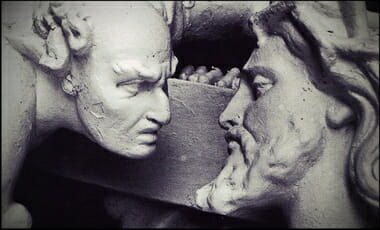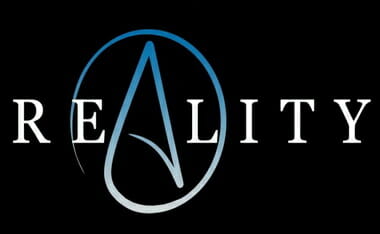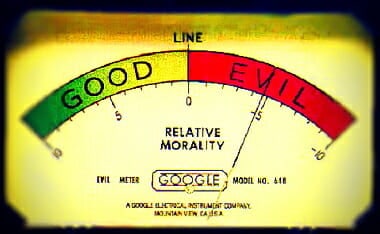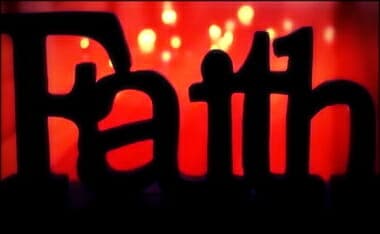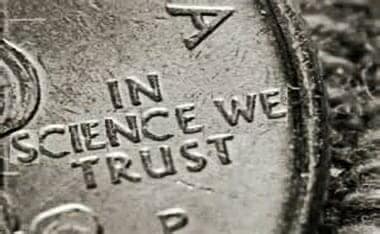Firstly, as I am want to point out, John Van Huizum often gets ideas, precepts, and others understanding of a subject woefully wrong. Take for instance this small portion of a recent article by him entitled “A Question of Life and Death” (click to enlarge). 
“These words” in John’s limited understanding ~ wrongly attributing to God ~ that no “clergy” themselves attribute to God are the crux of the issue. And I do not post the many excerpts to follow to prove John wrong. I post them in the hopes that John reads what most clergy themselves study. Enjoy this seminary level reaction to attributing to God one’s own ignorance of a topic:
God’s Love and Justice—A Point of Tension?
We have looked at many characteristics of God, without exhausting them by any means. But what of the interrelationships among them? Presumably, God is a unified, integrated being whose personality is a harmonious whole. There should be, then, no tension among any of these attributes. But is this really so?
The one point of potential tension usually singled out is the relationship between God’s love and his justice. On one hand, God’s justice seems so severe, requiring the death of those who sin. This is a fierce, harsh God. On the other hand, God is merciful, gracious, forgiving, long-suffering. Are not these two sets of traits in conflict with one another? Is there, then, internal tension in God’s nature?[10]
If we begin with the assumptions that God is an integrated being and the divine attributes are harmonious, we will define the attributes in the light of one another. Thus, justice is loving justice and love is just love. The idea that they conflict may have resulted from defining these attributes in isolation from one another. While the conception of love apart from justice, for example, may be derived from outside sources, it is not a biblical teaching.
What we are saying is that love is not fully understood unless seen as including justice. If love does not include justice, it is mere sentimentality. The approach that would define love as merely granting what someone else desires is not biblical. It runs into two difficulties: (1) Giving someone what would make him or her comfortable for the moment may be nothing more than indulging that person’s whim—such action may not necessarily be right. (2) This is usually an emotional reaction to an individual or situation that is immediately at hand. But love is much wider in scope—it necessarily entails justice, a sense of right and wrong, and all humankind. As Joseph Fletcher has correctly shown, justice is simply love distributed.[11] It is love to all one’s neighbors, those immediately at hand and those removed in space and time. Justice means that love must always be shown, whether or not a situation of immediate need presents itself in pressing and vivid fashion. Love in the biblical sense, then, is not merely to indulge someone near at hand. Rather, it inherently involves justice as well. This means there will be a concern for the ultimate welfare of all humanity, a passion to do what is right, and enforcement of appropriate consequences for wrong action.
Actually, love and justice have worked together in God’s dealing with the human race. God’s justice requires that there be payment of the penalty for sin. God’s love, however, desires humans to be restored to fellowship with him. The offer of Jesus Christ as the atonement for sin means that both the justice and the love of God have been maintained.
And there really is no tension between the two. There is tension only if one’s view of love requires that God forgive sin without any payment being made. But that is to think of God as different from what he really is. Moreover, the offer of Christ as atonement shows a greater love on God’s part than would simply indulgently releasing people from the consequences of sin. To fulfill his just administration of the law, God’s love was so great that he gave his Son for us. Love and justice are not two separate attributes competing with one another. God is both righteous and loving, and has himself given what he demands.[12]
[10] Nels Ferre, The Christian Understanding of God (New York: Harper & Brothers, 1951), pp. 227-28.
[11] Joseph Fletcher, Situation Ethics: The New Morality (Philadelphia: Westminster, 1966), pp. 86-102.
[12] William G. T. Shedd, Dogmatic Theology (Grand Rapids: Zondervan, 1971 reprint), vol. 1, pp. 377-78.
Millard J. Erickson, Christian Theology, 2nd ed. (Grand Rapids, MI: Baker Books/Academic, 1998), 323-325.
II. GOD THE REDEEMER OF SINNERS
While reiterating the teaching of nature as to the existence and character of the personal Creator and Lord of all, the Scriptures lay their stress upon the grace or the undeserved love of God, as exhibited in his dealings with his sinful and wrath-deserving creatures. So little, however, is the consummate divine attribute of love advanced, in the scriptural revelation, at the expense of the other moral attributes of God, that it is thrown into prominence only upon a background of the strongest assertion and fullest manifestation of its companion attributes, especially of the divine righteousness and holiness, and is exhibited as acting only along with and in entire harmony with them. God is not represented in the Scriptures as forgiving sin because he really cares very little about sin; nor yet because he is so exclusively or predominatingly the God of love, that all other attributes shrink into desuetude in the presence of his illimitable benevolence. He is rather represented as moved to deliver sinful man from his guilt and pollution because he pities the creatures of his hand, immeshed in sin, with an intensity which is born of the vehemence of his holy abhorrence of sin and his righteous determination to visit it with intolerable retribution; and by a mode which brings as complete satisfaction to his infinite justice and holiness as to his unbounded love itself. The biblical presentation of the God of grace includes thus the richest development of all his moral attributes, and the God of the Bible is consequently set forth, in the completeness of that idea, as above everything else the ethical God. And that is as much as to say that there is ascribed to him a moral sense so sensitive and true that it estimates with unfailing accuracy the exact moral character of every person or deed presented for its contemplation, and responds to it with the precisely appropriate degree of satisfaction or reprobation. The infinitude of his love is exhibited to us precisely in that while we were yet sinners he loved us, though with all the force of his infinite nature he reacted against our sin with illimitable abhorrence and indignation. The mystery of grace resides just in the impulse of a sin-hating God to show mercy to such guilty wretches; and the supreme revelation of God as the God of holy love is made in the disclosure of the mode of his procedure in redemption, by which alone he might remain just while justifying the ungodly. For in this procedure there was involved the mighty paradox of the infinitely just Judge himself becoming the sinner’s substitute before his own law and the infinitely blessed God receiving in his own person the penalty of sin.
B.B. Warfield, Selected Short Writings of Benjamin B. Warfield (Phillipsburg, NJ: P&R, 1970), 71-72.
(5) The ‘water and the blood’ of Christ, who thereby Himself overcame the world, is our power of victory (1 John 5 :4-6) . This depends on a right doctrine of the cross. Christianity in integrity means the orthodox Christology of Nicea and Chalcedon and the vicarious satisfaction of divine justice at Calvary, i.e. propitiation of the divine wrath as well as expiation of the evil of sin. Nothing can set the conscience free from the accusation of conscience and consequent weakness at the emotional and ethical center unless the sinner, having been made aware of the debt of sin he owes to God, is also made aware the debt has been paid in full by the vicarious sacrifice of the God-man at Calvary. There is no Christian moral victory without conviction that ‘Jesus paid it all.’ (See previous comments on revelation at Calvary and discussion of reconciliation and propitiation.) Francis Pieper commenting on ‘Christianity as the Absolute Religion’ says, `[T]he Christian religion is absolutely perfect because it is not a moral code instructing men how to earn the forgiveness of sin themselves, but rather it is faith in that forgiveness which was gained through Christ’s vicarious fulfillment of the Law and his substitutionary suffering of our punishment.’[10] Luther spoke often of this. As Calvin also remarked, our assurance that ‘God remains kindly disposed and favorable to our works is not grounded in some nebulous belief in the loving character of God, but specifically the love of God manifested at Calvary.’
`God’s unconditional love’ may be an unfortunate expression. I think it is. Calvary proves God’s love is great, but not unconditional at all. ‘[Y]ou hate all evildoers’ (Ps. 5:5); ‘The LORD is in his holy temple… his soul hates the wicked and the one who loves violence’ (Ps. 11:4, 5). ‘There are six things that the LORD hates…’ (Prov. 6:16-19— including a false witness and ‘one who sows discord among brothers’). God does not love the reprobate, as such, at all and He loves no one unconditionally. Even the elect He loves conditional upon His grace, which for reasons known only to H Him has not been equally extended to everyone on earth, granted the gospel is addressed to all without distinction. Let the unconvinced read the passages in Scripture about the eternal state of the lost and God’s jealous anger over unrestrained and unpunished murderers, idolaters, fornicators, etc. See notes herein on ‘sin to high heaven’ in hamartiology.
10. Francis Pieper, Christian Dogmatics i (St Louis: Concordia Publ., 1950s), pp. 33-40.
Robert Duncan Culver, Systematic Theology: Biblical and Historical (Ross-shire, Scotland: Christian Focus Publications, 2005), 590-591. I highly suggest the section on “Universalism” on pp. 1088-1091.
GOD’S JEALOUSY AND PERFECTION
Two more of God’s moral attributes are jealousy and perfection. Admittedly, jealousy is a surprising attribute, yet it is one of only a few that the Bible declares is God’s “name,” a distinctive title of one of God’s essential characteristics. In fact, this raises the unique problem (discussed below) as to why what is a sin for creatures is a moral attribute of God.
THE DEFINITION OF GOD’S JEALOUSY
The root meanings of the basic Old Testament word for “jealous” (kan-naw) are “to be desirous of,” “to be zealous about,” “to be excited to anger over,” and “to execute judgment because of.”
The Bible speaks of man’s jealousy (“zealous envy,” “angry fury”) in many places. It talks of being jealous of one’s brother (Gen. 37:11); of having jealousy over a wife (Num. 5:14); of jealousy leading to rage (Prov. 6:34); of jealousy being as cruel as death (Song 8:6 Nagy); of jealousy and selfish ambition ( James 3:16); and of Paul’s jealous zeal for the church (2 Cor. 11:2—see below, under “An Objection to God’s Jealousy”).
As will be shown (in the texts cited below), jealousy is used of God in terms of His holy zeal and His angry wrath. God has holy zeal to protect His supremacy, and God has angry wrath on idolatry and other sins.
THE BIBLICAL BASIS FOR GOD’S JEALOUSY
God’s jealousy can be understood by looking at its nature, its subject, and its object.
The Nature of God’s Jealousy
God’s jealousy carries the connotation of anger, fury, and wrath. Anger (Deut. 29:20): “The LORD will never be willing to forgive him; his wrath and zeal will burn against that man. All the curses written in this book will fall upon him, and the LORD will blot out his name from under heaven.” Fury (Zech. 8:2): “This is what the LORD Almighty says: ‘I am very jealous for Zion; I am burning with jealousy for her.’ ” Wrath (Isa. 42:13): “The LORD will march out like a mighty man, like a warrior he will stir up his zeal; with a shout he will raise the battle cry and will triumph over his enemies.”
The Subject of God’s Jealousy
God’s jealousy is vented on images, idols, other gods, and other sins. Images (Ps. 78:58): “They angered him with their high places; they aroused his jealousy with their idols.” Idols (1 Cor. 10:19-22): “Do I mean then that a sacrifice offered to an idol is anything, or that an idol is anything? No, but the sacrifices of pagans are offered to demons, not to God. . . . Are we trying to arouse the Lord’s jealousy?” Other gods (Deut. 32:16): “They made him jealous with their foreign gods and angered him with their detestable idols.” Other sins (1 Kings 14:22): “Judah did evil in the eyes of the LORD. By the sins they committed they stirred up his jealous anger more than their fathers had done.”
The Object of God’s Jealousy
The object of God’s jealousy is first and foremost His own nature, then His name, His people (Israel), His land (the Holy Land), and His city ( Jerusalem). His own nature (Ex. 34:14): “Do not worship any other god, for the LORD, whose name is Jealous, is a jealous God.” His name (Ezek. 39:25): “Therefore this is what the Sovereign LORD says: I will now bring Jacob back from captivity and will have compassion on all the people of Israel, and I will be zealous for my holy name.” His people (Zech. 8:2): “This is what the LORD Almighty says: ‘I am very jealous for Zion; I am burning with jealousy for her.’ ” His land ( Joel 2:18): “Then the LORD will be jealous for his land and take pity on his people.” His city (Zech. 1:14): “Proclaim this word: This is what the LORD Almighty says: ‘I am very jealous for Jerusalem and Zion.’ “
THE THEOLOGICAL BASIS FOR GOD’S JEALOUSY
A combination of other attributes forms the basis for God’s jealousy. Foremost among these is God’s holiness; God is particularly jealous about preserving His own uniqueness. Of course, all of God’s attributes are unique and comprise the one infinite, absolutely perfect, and supreme God. The theological argument for God’s jealousy can be formulated as follows:
(1) God is unique and supreme (see His metaphysical attributes—chap-ters 2-12).
(2) God is holy, loving, and morally perfect (see His moral attributes—chapters 13-17).
(3) Hence, God is uniquely and supremely holy, loving, and morally perfect.
(4) Whatever is supremely holy, loving, and perfect is to be preserved with the utmost zeal.
(5) God’s jealousy is His zeal to preserve His own holy supremacy.
(6) Therefore, He is eminently justified in His jealousy. Indeed, it is essential to His very nature: His name is Jealous (Ex. 34:14).
THE HISTORICAL BASIS FOR GOD’S JEALOUSY
The Early Church Fathers on God’s Jealousy
Although not one of the more noted attributes of God, His jealousy did not go unnoticed by the early church Fathers. There are considerable references to God’s jealousy.
Justin Martyr
They sacrificed to demons whom they knew not; new gods that came newly up, whom their fathers knew not. Thou hast forsaken God that begat thee, and forgotten God that brought thee up. And the Lord saw, and was jealous, and was provoked to anger by reason of the rage of His sons and daughters. . . . They have moved Me to jealousy with that which is not God, they have provoked Me to anger with their idols; and I will move them to jealousy with that which is not a nation, I will provoke them to anger with a foolish people. For a fire is kindled from Mine anger, and it shall burn to Hades. (DJ, 119 in Roberts and Donaldson, ANF, I)
Irenaeus
It is therefore one and the same God the Father who has prepared good things with Himself for those who desire His fellowship, and who remain in subjection to Him; and who has the eternal fire for the ringleader of the apostasy, the devil, and those who revolted with him, into which [fire] the Lord has declared those men shall be sent who have been set apart by themselves on His left hand. And this is what has been spoken by the prophet, “I am a jealous God, making peace, and creating evil things”; thus making peace and friendship with those who repent and turn to Him, and bringing [them to] unity, but preparing for the impenitent, those who shun the light, eternal fire and outer darkness, which are evils indeed to those persons who fall into them. (AH, 4.40.1 in ibid., I)
Tertullian
Even His severity then is good, because [it is] just: when the judge is good, that is just. Other qualities likewise are good, by means of which the good work of a good severity runs out its course, whether wrath, or jealousy, or sternness. For all these are as indispensable to severity as severity is to justice. The shamelessness of an age, which ought to have been reverent, had to be avenged. Accordingly, qualities which pertain to the judge, when they are actually free from blame, as the judge himself is, will never be able to be charged upon him as a fault. (FBAM, 2.216 in ibid., III)
Cyprian
There is no ground, therefore, dearest brother, for thinking that we should give way to heretics so far as to contemplate the betrayal to them of that baptism, which is only granted to the one and only Church. It is a good soldier’s duty to defend the camp of his general against rebels and enemies. It is the duty of an illustrious leader to keep the standards entrusted to him. It is written, “The Lord thy God is a jealous God” (EC, 72.10 in ibid., 5.787, V).
The Medieval Fathers on God’s Jealousy
Augustine
For Him doth “the friend of the bridegroom” sigh, having now the first-fruits of the Spirit laid up with Him, yet still groaning within himself, waiting for the adoption, to wit, the redemption of his body; to Him he sighs, for he is a member of the Bride; for Him is he jealous, for he is the friend of the Bridegroom; for Him is he jealous, not for himself; because in the voice of Thy “waterspouts,” not in his own voice, doth he call on that other deep, for whom being jealous he feareth, lest that, as the serpent beguiled Eve through his subtlety, so their minds should be corrupted from the simplicity that is in our Bridegroom, Thine only Son. (C, 13.13 in Schaff, NPAT, 1.1)
Ineffable is therefore that patience, as is His jealousy, as His wrath, and whatever there is like to these. For if we conceive of these as they be in us, in Him are there none. We, namely, cancel none of these without been set apart by themselves on His left hand. And this is what has been spoken by the prophet, “I am a jealous God, making peace, and creating evil things”; thus making peace and friendship with those who repent and turn to Him, and bringing [them to] unity, but preparing for the impenitent, those who shun the light, eternal fire and outer darkness, which are evils indeed to those persons who fall into them. (AH, 4.40.1 in ibid., I)
Tertullian
Even His severity then is good, because [it is] just: when the judge is good, that is just. Other qualities likewise are good, by means of which the good work of a good severity runs out its course, whether wrath, or jealousy, or sternness. For all these are as indispensable to severity as severity is to justice. The shamelessness of an age, which ought to have been reverent, had to be avenged. Accordingly, qualities which pertain to the judge, when they are actually free from blame, as the judge himself is, will never be able to be charged upon him as a fault. (FBAM, 2.216 in ibid., III)
Cyprian
There is no ground, therefore, dearest brother, for thinking that we should give way to heretics so far as to contemplate the betrayal to them of that baptism, which is only granted to the one and only Church. It is a good soldier’s duty to defend the camp of his general against rebels and enemies. It is the duty of an illustrious leader to keep the standards entrusted to him. It is written, “The Lord thy God is a jealous God” (EC, 72.10 in ibid., 5.787, V).
The Medieval Fathers on God’s Jealousy
Augustine
For Him doth “the friend of the bridegroom” sigh, having now the first-fruits of the Spirit laid up with Him, yet still groaning within himself, waiting for the adoption, to wit, the redemption of his body; to Him he sighs, for he is a member of the Bride; for Him is he jealous, for he is the friend of the Bridegroom; for Him is he jealous, not for himself; because in the voice of Thy “waterspouts,” not in his own voice, doth he call on that other deep, for whom being jealous he feareth, lest that, as the serpent beguiled Eve through his subtlety, so their minds should be corrupted from the simplicity that is in our Bridegroom, Thine only Son. (C, 13.13 in Schaff, NPNF, 1.1)
Ineffable is therefore that patience, as is His jealousy, as His wrath, and whatever there is like to these. For if we conceive of these as they be in us, in Him are there none. We, namely, cancel none of these without molestation: but be it far from us to surmise that the impassible nature of God is liable to any molestation. But like as He is jealous without any darkening of spirit, wroth without any perturbation, pitiful without any pain, repenteth Him without any wrongness in Him to be set right; so is He patient without aught of passion. (OP, 1 in ibid., 1.III)
Because “the Lord our God is a jealous God,” let us refuse, whenever we see anything of His with an alien, to allow him to consider it his own. For of a truth the jealous God Himself rebukes the woman who commits fornication against Him, as the type of an erring people, and says that she gave to her lovers what belonged to Him, and again received from them what was not theirs but His. In the hands of the adulterous woman and the adulterous lovers, God in His wrath, as a jealous God, recognizes His gifts; and do we say that baptism, consecrated in the words of the gospel, belongs to heretics? (BAD, 3.19.25 in ibid., 1.IV)
The Reformation Leaders on God’s Jealousy
Martin Luther
“For Him Who once drowned the whole world in the Flood and sank Sodom with fire, it is a simple thing to slay or to defeat so many thousands of peasants. He is an almighty and terrible God” (WL, 4.226).
God says: “I the Lord thy God am a jealous God.” Now, God is jealous in two manners of ways; first, God is angry as one that is jealous of them that fall from him, and become false and treacherous, that prefer the creature before the Creator; that build upon the favors of the great; that depend upon their friends, upon their own power—riches, art, wisdom, etc.; that forsake the righteousness of faith, and contemn it, and will be justified and saved by and through their own good works. God is also vehemently angry with those that boast and brag of their power and strength; as we see in Sennacherib, king of Assyria, who boasted of his great power, and thought utterly to destroy Jerusalem. . . .
Secondly, God is jealous for them that love him and highly esteem his word; such God loves again, defends and keeps as the apple of his eve, and resists their adversaries, beating them back that they are not able to perform what they intended. Therefore, this word jealous comprehends both hatred and love, revenge and protection; for which cause it requires both fear and faith; fear, that we provoke not God to anger, or work his displeasure; faith, that in trouble we believe he will help, nourish, and defend us in this life, and will pardon and forgive us our sins, and for Christ’s sake preserve us to life everlasting. (TT, 135-36)
John Calvin
But though in every passage where the favour or anger of God is mentioned, the former comprehends eternity of life and the latter eternal destruction, the Law, at the same time, enumerates a long catalogue of present blessings and curses (Lev. xxvi. 4; Deut. xxviii. 1). The threatenings attest the spotless purity of God, which cannot bear iniquity, while the promises attest at once his infinite love of righteousness (which he cannot leave unrewarded), and his wondrous kindness. Being bound to do him homage with all that we have, he is perfectly entitled to demand everything which he requires of us as a debt; and as a debt, the payment is unworthy of reward. He therefore foregoes his right, when he holds forth reward for services which are not offered spontaneously, as if they were not due. (ICR, 1.8.4)
Jacob Arminius
Hatred is an affection of separation in God; whose primary object is injustice or unrighteousness; and the secondary, the misery of the creature: The former is from “the love of complacency”; the latter, from “the love of friendship.” But since God properly loves himself and the good of justice, and by the same impulse holds iniquity in detestation; and since he secondarily loves the creature and his blessedness, and in that impulse hates the misery of the creature, that is, He wills it to be taken away from the creature; hence it comes to pass, that He hates the creature who perseveres in unrighteousness, and He loves his misery. (WJA, II.44)
The Post-Reformation Theologians on God’s Jealousy
Jonathan Edwards
Those who come to Christ need not be afraid of God’s wrath for their sins; for God’s honor will not suffer by their escaping punishment and being made happy. The wounded soul is sensible that he has affronted the majesty of God, and looks upon God as a vindicator of his honor; as a jealous God that will not be mocked, an infinitely great God that will not bear to be affronted, that will not suffer his authority and majesty to be trampled on, that will not bear that his kindness should be abused. (WJE, 376)
For we see that when men come to be under convictions, and to be made sensible that God is not as they have heretofore imagined, but that he is such a jealous, sin-hating God, and whose wrath against sin is so dreadful, they are much more apt to have sensible exercises of enmity against him than before. (ibid., 1021)
William G. T Shedd
There is a kind of wrath in the human soul that resembles the wrath of God, and constitutes its true analogue. It is the wrath of the human conscience, which is wholly different from that of the human heart. That kind of anger is commanded in the injunction “Be ye angry and sin not” (Eph. 4:26). Were this species of moral displacency more often considered, and the Divine anger illustrated by it, there would be less of the common and unthinking opposition to the doctrine of the Divine wrath. (DT, 176)
Stephen Charnock
God is a jealous God, very sensible of any disgrace, and will be as much incensed against an inward idolatry as an outward: that command which forbade corporeal images, would not indulge carnal imaginations; since the nature of God is as much wronged by unworthy images, erected in the fancy, as by statues carved out of stone or metals. (EAG, 1.198)
J. I. Packer
God’s jealousy is not a compound of frustration, envy and spite, as human jealousy so often is, but appears instead as a [literally] praiseworthy zeal to preserve something supremely precious.
Zeal to protect a love relationship or to avenge it when broken [is a good sort of jealousy]. This jealousy also operates in the sphere of sex; there, however, it appears not as the blind reaction of wounded pride but as the fruit of marital affection. As Professor Taylor has written, married persons “who felt no jealousy at the intrusion of a lover or an adulterer into their home would surely be lacking in moral perception; for the exclusiveness of marriage is the essence of marriage” [The Epistle of James, 106]. This sort of jealousy is a positive virtue, for it shows a grasp of the true meaning of the husband-wife relationship, together with a proper zeal to keep it intact. . . . God’s jealousy is of this kind; that is, as an aspect of his covenant love for his people. The Old Testament regards God’s covenant as his marriage with Israel, carrying with it a demand for unqualified love and loyalty.
From these passages we see plainly what God meant by telling Moses that his name was “Jealous.” He meant that he demands from those whom he has loved and redeemed utter and absolute loyalty, and he will vindicate his claim by stern action against them if they betray his love by unfaithfulness. (KG, 170-71)
AN OBJECTION TO GOD’S JEALOUSY
Objection One—Based on an Alleged Inconsistency
This objection points to an apparent inconsistency: Why is jealousy right for God but wrong for us? All other moral attributes of God we are asked to emulate: God is love, and we should be loving (1 John 4:19); God is holy, and we should be holy (Lev. 11:45). Why, then, if God is jealous, should we not also be jealous?
Response to Objection One
The answer to this objection is simple: There is no inconsistency; jealousy can be right sometimes and wrong at other times. Wrong jealousy for us is about being jealous for what does not belong to us. God cannot ever be jealous of what does not belong to Him, since He owns everything. Psalm 24:1 declares: “The earth is the LORD’S, and everything in it, the world, and all who live in it.” Deuteronomy 32:21 adds, “They made me jealous by what is no god and angered me with their worthless idols. I will make them envious by those who are not a people; I will make them angry by a nation that has no understanding.”
Everything belongs to God, even the things He has entrusted to the care of others; hence, it is not right for us to be jealous about what is not ours. Jealousy, as such, is not evil; what is evil is being jealous about what is not ours. Therefore, there is no inconsistency in it being right for God to be jealous for our affection (which belongs to Him) and it being wrong for us.
Note, however, that not all jealousy is wrong for human beings—godly jealousy is right. For example, Paul’s jealousy for the church was commendable. He wrote, “I am jealous for you with a godly jealousy. I promised you to one husband, to Christ, so that I might present you as a pure virgin to him” (2 Cor. 11:2). Likewise, there is nothing wrong with a husband having appropriate jealousy over his wife (or vice versa), since she belongs to him (cf. Num. 5:14) and he to her.
Norman Geisler, Systematic Theology: Introduction: Bible, vol. I (Minneapolis, MN: Bethany House Publishers, 2002), 338-345.
